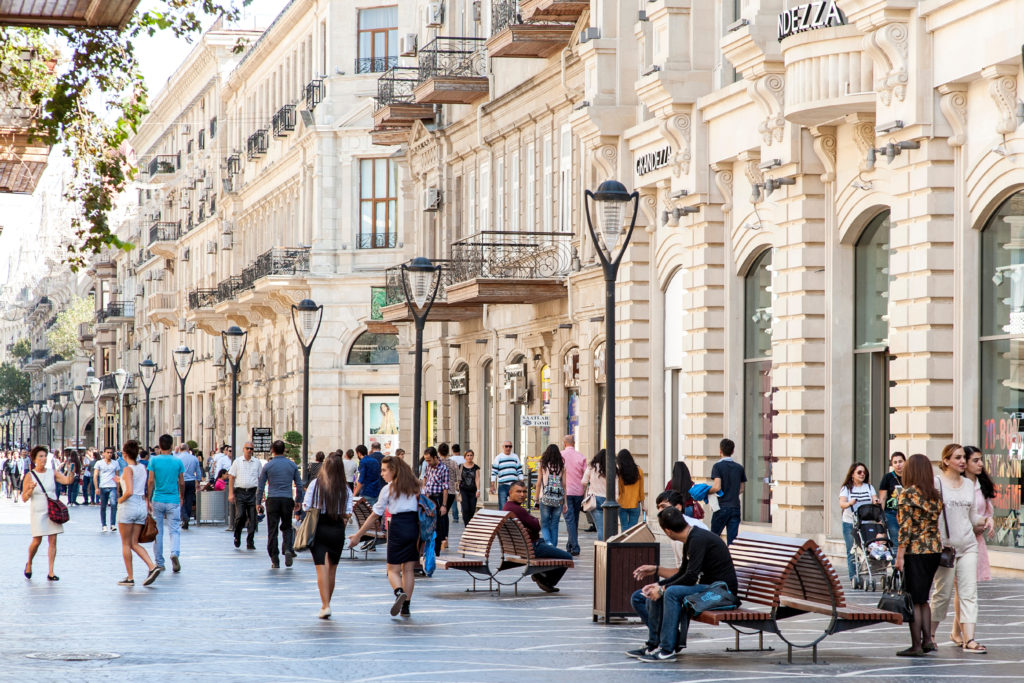BAKU
Azerbaijan’s government may raise its forecast for economic growth this year after gross domestic product rebounded in January to May, as expansion in industries such as agriculture, communications services and retail offset the decline in oil and gas, signalling the country is starting to recover from the effects of the COVID-19 pandemic.
The government may revise its Gross Domestic Product (GDP) growth forecast to 4 percent from the current projection of 3.4 percent, a source at the Economy Ministry told the Tribune. The country’s GDP contracted by 4.3 percent in 2020.
GDP grew 0.8 percent in the first five months of 2021 from a year earlier, the first expansion since February last year, when the country’s economy, which relies heavily on oil and gas production, took a serious hit from a fall in global oil prices and restrictions imposed to stop the spread of COVID-19. In January-April, the economy shrank o.2 percent.
The State Statistics Committee said that decline in the oil sector was 6.7 percent, while the non-oil sector grew by 4.5 percent. In nominal terms GDP reached 31.5 billion manats ($18.5 billion).
A drop in global demand due to the pandemic hit oil markets hard, forcing oil-producing countries in the OPEC+ group, of which Azerbaijan is a member, to cut production to support global oil prices. This was a blow to Azerbaijan’s economy, which is traditionally reliant on oil and gas, while COVID-19 restrictions also hurt other industries, leading to a contraction in GDP.
“The possible revision is related to the government expectations over non-oil GDP growth as well as the positive dynamics of the oil sector in case if oil prices remain high on the world market and a gradual increase in Azerbaijan’s quota under the agreed OPEC+ deal,” the source, who did not want to be named, said.
In nominal terms GDP reached 31.5 billion manats ($18.5 billion). Azerbaijan reduced oil and gas condensate production by 5.2 percent year-on-year to 8.816 million tonnes in the first quarter of 2021. Natural gas production rose 5.7 percent to 10.563 billion cubic metres.
According to the State Statistics Committee, annual inflation in May was 4.2 percent, down from 4 percent in April. Azerbaijan forecasts annual inflation at 3 percent this year, slightly up from 2.8 percent in 2020.
The World Bank said last week that Azerbaijan’s economic growth should be supported by the stabilisation of oil prices as well as investment and reconstruction spending.
The November 2020 ceasefire agreement between Armenia and Azerbaijan alleviated geopolitical tensions in the region, although risks to stability remain elevated.
Still, economists’ predictions as to the pace of the recovery vary. While the World Bank predicts that Azerbaijan’s economy will grow 2.8 percent this year and 3.9 percent in 2022, the International Monetary Fund’s forecast is less upbeat, forecasting 2.3 percent growth in 2021, and slowing to 1.7 percent in 2022.
World Bank economists predict that in 2021, an acceleration of domestic demand will support economic growth, but cautions that this will be conditional on an improved health situation and increased public spending. Higher oil prices are forecast to narrow the fiscal deficit and help the current account return to surplus. Beyond 2021, without major structural reforms, the pace of the economic revival is likely to be moderate owing to a protracted recovery in oil output and anticipated fiscal tightening.
Meanwhile, the Asian Development Bank said earlier this month that growth was forecast to return in 2021 at 1.9 percent and accelerate to 2.5 percent in 2022 as demand improves at home and abroad. As consumer confidence is restored and petroleum receipts become available for public investment, growth in the petroleum industry is expected to be outpaced by expansion in the rest of the economy, it said.
The Asian Development Bank also forecasts that inflation is expected to accelerate to 3.5 percent in 2021, reflecting price increases of 10 percent for gasoline and 33 percent for diesel and a doubling of household water charges. A projected decline in domestic food prices should trim inflation in 2022 to 3.0 percent. Inflation could be higher if other utility tariffs are raised, it said, though adding the managed exchange rate regime should limit the impact of import prices on inflation.
Monetary policy is expected to focus on inflation control but still support economic recovery. Broad money is projected to rise from continued fiscal stimulus and resumed growth in credit to the private sector, while Azerbaijan’s exchange rate should remain stable as a renewed trade surplus takes the pressure off the manat.

